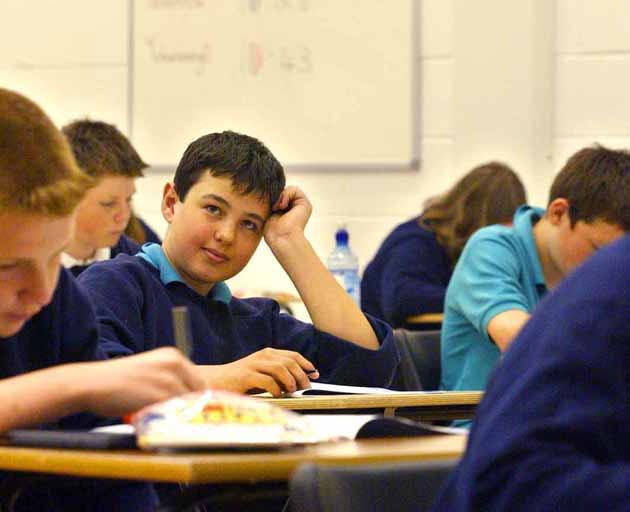Exam boards refuse to mark school SATs

Your support helps us to tell the story
From reproductive rights to climate change to Big Tech, The Independent is on the ground when the story is developing. Whether it's investigating the financials of Elon Musk's pro-Trump PAC or producing our latest documentary, 'The A Word', which shines a light on the American women fighting for reproductive rights, we know how important it is to parse out the facts from the messaging.
At such a critical moment in US history, we need reporters on the ground. Your donation allows us to keep sending journalists to speak to both sides of the story.
The Independent is trusted by Americans across the entire political spectrum. And unlike many other quality news outlets, we choose not to lock Americans out of our reporting and analysis with paywalls. We believe quality journalism should be available to everyone, paid for by those who can afford it.
Your support makes all the difference.Two of the country's biggest exam boards have made it clear they are ruling out taking over the marking of national curriculum tests next year, placing a major question mark over the delivery of next year's results.
Both the Assessment and Qualifications Alliance (AQA), the biggest exam board in the country, and the Oxford and Cambridge and Royal Society of Art board (OCR), have bluntly said they will refuse to take on the marking of the tests for pupils aged 11 and 14.
This follows the fiasco this year which has led to thousands of children still waiting to receive their results a month after the deadline for completing the marking.
The third of the "big three" exam boards, Edexcel, has given no indication as to whether it would bid for the contract. It bid last time but was unsuccessful.
The decision by the exam boards poses a dilemma for the Government and its national curriculum watchdog, the Qualifications and Curriculum Authority.
Negotiations are continuing between the QCA and the US-based firm charged with administering and marking this year's results – ETS Europe – over its five-year, £156m contract to deliver the results.
A clause in the contract for the tests paves the way for the firm to pay "tens of millions of pounds" in compensation for late delivery of results, Ken Boston, chief executive of the QCA, has told MPs.
However, the prospect of cancelling the contract altogether has been raised during the talks. A refusal by UK exam boards to take over the contract – thought to have been prompted by fears that it was "undeliverable" – leaves ministers with few alternatives for next year's tests. They either have to stick with ETS Europe in the hope that its performance will improve or go back to a system whereby their own civil servants take responsibility for the tests. Dr Boston has already indicated that the deadline for delivering next year's test results for 14-year-olds will be relaxed.
Meanwhile, the emphasis next week will shift to A-level results, due on Thursday and expected to show a slight rise (0.2 or 0.3 percentage points) in the pass rate for the 26th year in succession, pushing it beyond 97 per cent for the first time.
A bigger rise is expected in the percentage of scripts awarded an A-grade pass – pushing it up from 25.3 per cent to about 26 per cent (also a record high). Last year was the first time that more than one in four scripts was awarded an A grade.
Boys are expected to reduce the gap in performance overall between them and girls from the current level of 1.3 percentage points. However, the gap in performance at A-grade level (2.6 per cent) is expected to continue or even widen. About 250,000 students are awaiting A-level results.
Join our commenting forum
Join thought-provoking conversations, follow other Independent readers and see their replies
Comments